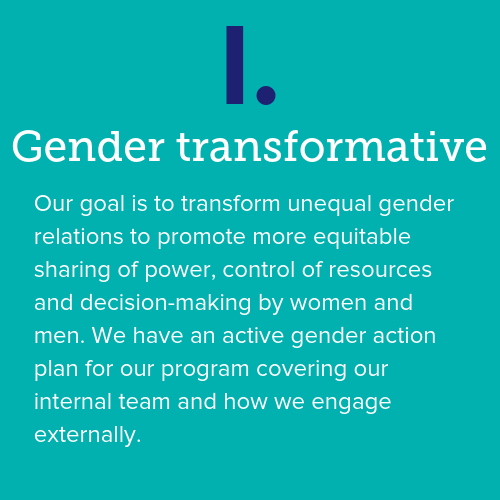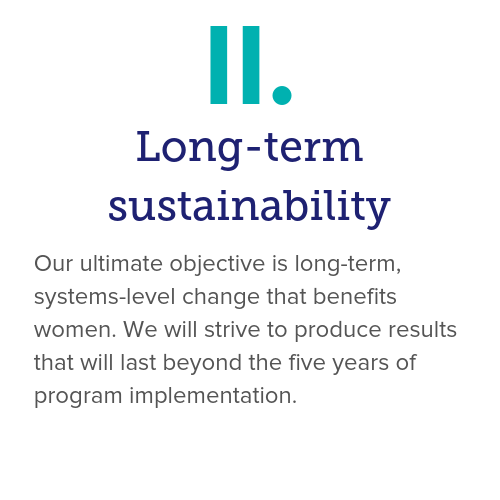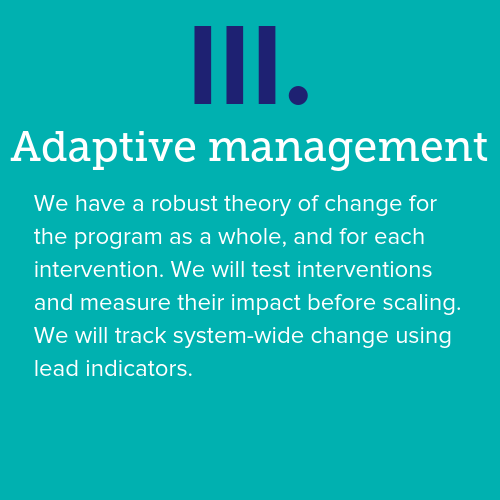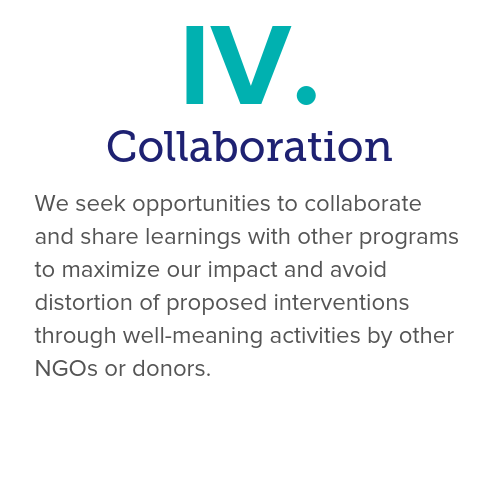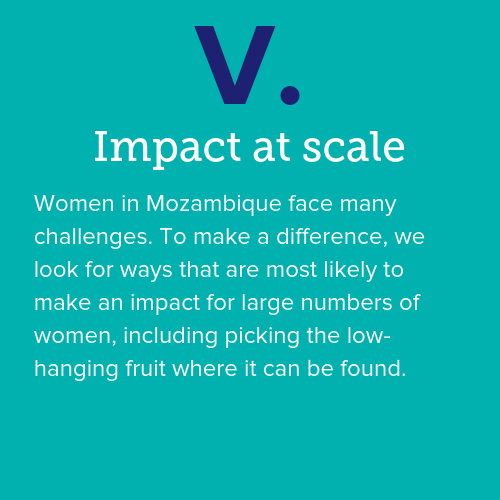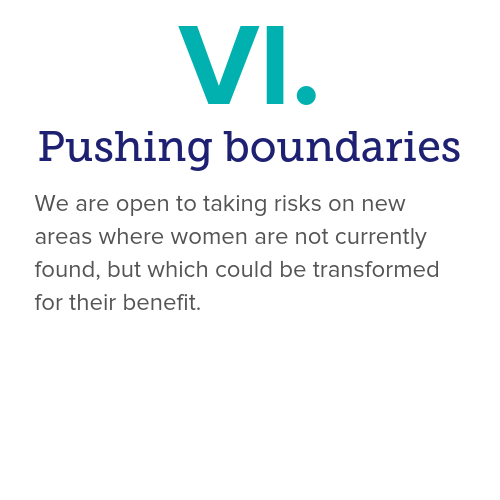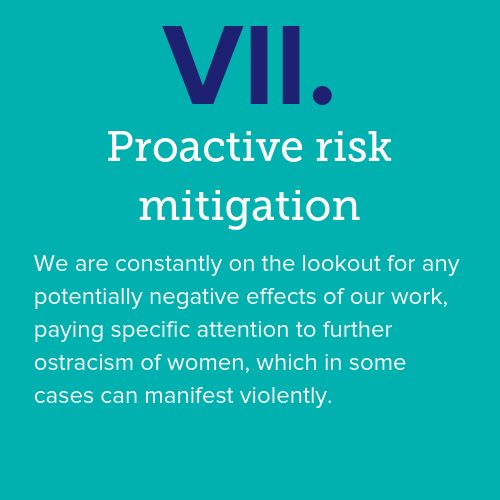Women IN Business (WIN 2.0)
Location
Various (nationwide with increased
focus in the north)
DURATION
2023-2025 (2.5 years)
DONOR
Swedish International Development Cooperation Agency (SIDA)
GRANT
$2.8 Million
THEMATIC AREA
Market Systems Development;
Women’s Economic Empowerment;
Entrepreneurship
IMPACT GROUP(S)
Low-income women, including young and adult female micro-entrepreneurs and smallholder
farmers in rural, peri-urban and urban areas
Improving inclusive economic growth in Mozambique through female entrepreneurship
Women IN Business (WIN) aims to increase the economic empowerment of women across Mozambique, primarily by developing the micro/agro-enterprise sectors through a market systems facilitation approach.
By working with permanent private and public sector actors, WIN enables an improved provision of services and better operating rules and norms for women micro-entrepreneurs and small holder farmers.
WIN works to promote women’s economic empowerment because more than three quarters of economically active Mozambicans are involved in small and informal businesses, 60% of whom are women. Yet despite their equal importance with male entrepreneurs, Mozambican women entrepreneurs:
- have smaller businesses and lower incomes
- have higher demands at home (i.e. caring for the family, domestic chores)
- face discrimination and unequal access to information, financial services, products and markets, among others
- have less decision making power
The WIN program is financed by The Swedish International Development Cooperation Agency (SIDA) and implemented in partnership with TechnoServe.
The program began in 2018 and is now on its second phase, that is expected to run until the end of 2027, although it will stand alone for an initial two-and-a-half-year contract (1 July 2023 – 31 December 2025). During the first phase (2018-2023), WIN reached 512,295 women with low income across Mozambique, with evidence of improved economic empowerment for over 42,050
For the second phase, WIN’s target group has extended to intentionally include rural women living and working outside of Maputo and provincial capitals, as well as young women (18-35 years old). Within the project’s definition of rural, there are two sub-segments: peri-urban – women who live closer to towns or hubs, and may have nano/micro businesses and rural – women who live between towns/cities, in villages, and are mainly farmers. Our interventions focus on both segments.
Approach
WIN is a change facilitator.
WIN’s role is to identify opportunities and barriers for women and find business partners with the incentive and ability to break down those barriers. This is known as a market systems development (MSD) approach.
We work in partnership with permanent market players – such as private sector companies, associations, service providers, the public sector and regulators. Our method is to provide time-bound, technical and financial support to carefully selected partner organizations to develop new ways of working that improve the partner’s business and the lives of low-income women concurrently, before inviting other market players to replicate their success.
Partners contribute their own resources into these shared initiatives, sending a clear signal of their intent to sustain improved ways of working well into the future.
This approach allows us to find sustainable, lasting, market-based solutions for women.
Examples of intervention areas include:
ACCESS TO INPUTS AND EQUIPMENT
Women often face challenges in accessing productive equipment and inputs to grow their businesses or farms because of lack of information or capital. WIN increases availability and use of inputs and equipment that can contribute to women’s economic empowerment in Mozambique, including rural women and small holder farmers. WIN’s strategy focuses on facilitating access to basic agricultural inputs, such as improved seeds, fertilizer and pesticides; and promotes the use and access of green energy (agricultural) equipment (e.g. solar water pumps).
ACCESS TO FINANCIAL SERVICES
Financial services are necessary for any growing business. Yet women are often excluded from these services due to lack of documents, information, decision-making power, and time and mobility. WIN aims to improve women’s access to and use of financial services, including savings, payments and loan products tailored to their needs and preferences, with an emphasis on formal services where women can have greater security and agency over their assets.
ACCESS TO INFORMATION AND TRAINING
Improved (agro-) business skills leads to higher incomes, but many women entrepreneurs and small holder farmers do not have access to information and training. Greater access to these can help women understand and implement new practices that may help them increase their productivity and income, as well as their confidence, and security. This vertical will also promote access to complementing topics that are crucial for women micro-entrepreneurs and small holder farmers to grow their productivity, income and confidence. These include climate resilient and positive agricultural practices, financial education skills, gender norms and conflict mitigation (in Cabo Delgado).
Within each of these areas of intervention WIN will address (formal) Rules and (social) Norms that influence women’s ability to access, use and make decisions on the products and services they need to grow their productivity and businesses. Initiatives include working at the Ministry level to influence policy, as well as integrating gender norms in all information and training activities across all verticals.
Market level activities
WIN 2.0 will increase its focus on Market level activities, specifically, Gender integration in the Private sector. Under this set of activities, WIN will work in two different components.
The first is supporting organizations integrate gender inclusive action plans and models. This support can come under the form of performing gender analyses, supporting the development of gender policies, co-developing inclusive business models, developing more gender inclusive monitoring systems, and more.
The second component is supporting and building the capacity of local business development services (BDS) providers to adopt more gender responsive business models, and to provide a gender consultancy function to the market. This is to ensure there are local actors capable of replicating some of WIN’s advisory work and expertise with the private sector.
